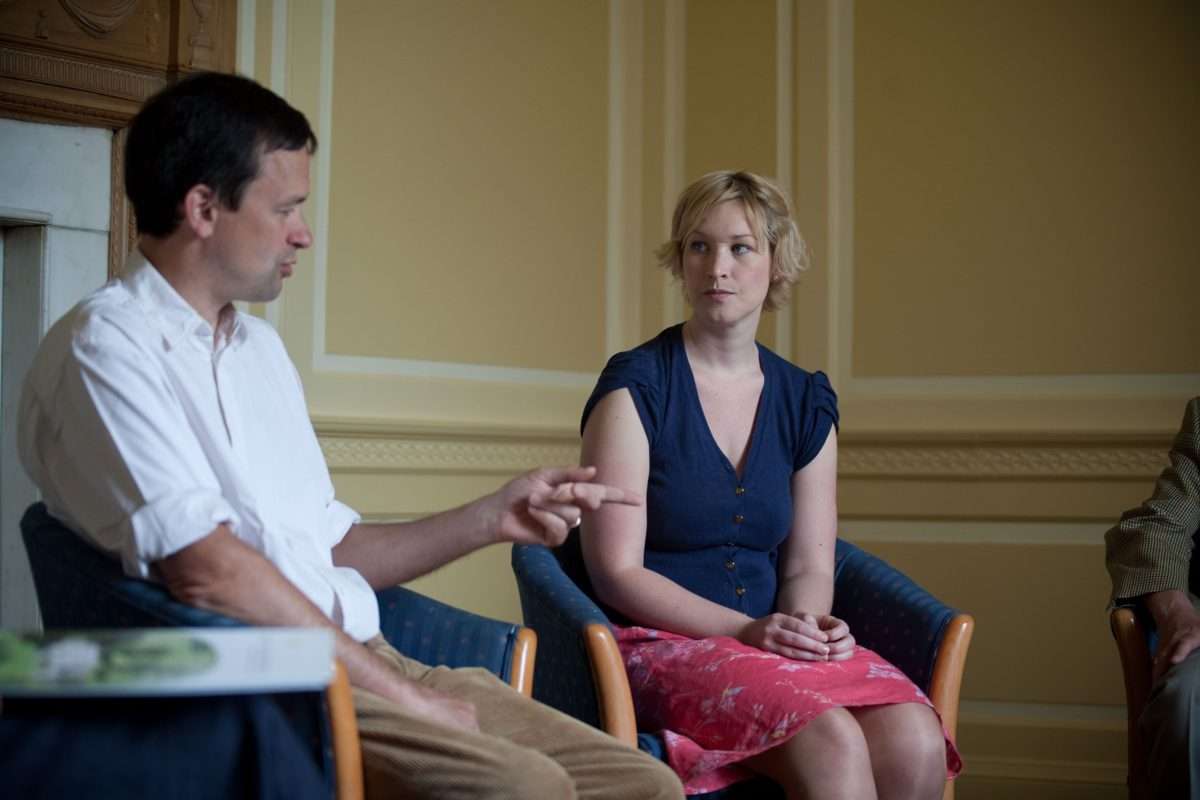
Helping Support Families and Loved Ones
Family Therapy
We understand how challenging it can be to live with someone affected by addiction. We also know that good support from family and friends is essential to achieving long-lasting recovery. That’s why we offer support to the whole family – not just the patient – from the moment someone approaches us for treatment.
Every week, family members are invited to Castle Craig to visit their relatives and attend educational lectures, family therapy sessions, and support meetings.
Family Therapy Programme
Our family therapy programme helps patients and their families to repair and build better relationships with each other – relationships which have often been fractured due to the addiction.
By enabling family members to express their feelings in a supportive environment, we lay the foundations for better communication and ongoing family connection after the patient leaves us.

What Does Family Therapy at Rehab Involve?
Each family is offered sessions with their relative’s lead therapist. These sessions usually take place online, but can also be face-to-face if convenient.
During the sessions, family members learn about addiction, to help them better understand their relative’s behaviour. They are encouraged to listen to each other and work together to develop collaborative ways of coping with challenges.
Research shows that involving family members in addiction treatment leads to much better outcomes.

Download Our Brochure
Goals of Family Therapy for Addiction
- Develop a more compassionate understanding of addiction and its impact on the whole family.
- Facilitate, and sometimes reestablish, communication between family members, as relationships may have broken down or been severely damaged.
- Deepen understanding of family dynamics and the different roles family members adopt about addiction. Without realising it, some family members may have played an enabling role in the addiction.
- Help family members to rebuild their own lives.
- Learn methods to support ongoing recovery as a family unit.
Family Recovery Workshops
We also offer weekend recovery workshops for families to share their experiences and learn more about addiction. Led by a highly experienced family therapist, these online workshops run over two days and cover issues such as aftercare and relapse, developing healthy boundaries, and ways to resolve conflict.
Family Counselling Support After Inpatient Treatment
Family members are encouraged to join a monthly support group and will be given details about how to sign up for it.
Castle Craig’s outpatient therapy service offers online family counselling for family members who need further therapy to strengthen family bonds and resolve conflicts. These sessions take place online with an accredited psychotherapist.
About Family Therapy
Family therapy at a residential rehab clinic is a crucial part of the treatment process. It encourages open communication between family members in a safe environment, with a therapist present. Family therapy helps to identify and address family dynamics, improve communication, and create collaborative coping mechanisms.
Family therapy helps the patient to better understand how their addiction has impacted their family, and consider how to repair those relationships. Ultimately, family therapy helps to establish a stronger foundation of trust and support, which will assist a patient’s recovery journey.
-
Useful Resources
- Association for Family Therapy and Systemic Practice. What Is Family Therapy? [Accessed July 2024].
- Nicholls K. Family Therapy. Counselling Directory. [Accessed July 2024].
- Substance Misuse and Mental Health Services Administration (SAMHSA). Family Therapy Can Help. [Accessed July 2024].
How Can Castle Craig Help?
Who will I speak to when I call Castle Craig?
When you call you will reach our Help Centre team who will give you all the information you need to help you decide whether to choose treatment at Castle Craig. If you decide that you would like to have a free screening assessment you will be asked a series of questions to build up a picture of your medical and drug use history as well as any mental health issues you are facing. If you decide you want to proceed with treatment you will be put in touch with our admissions case managers who will guide you through the admissions process.
How long is the rehab programme?
Residential rehab treatment starts at 4 weeks and can go up to 12+ weeks. Research shows us that the longer you stay in rehab and are part of the residential therapy programme, the longer the likelihood of continued abstinence and stable recovery.
How do I pay for rehab?
One concern we sometimes hear from people is how they will fund their rehab treatment. You can pay for treatment at Castle Craig privately, or through medical insurance, and some people receive funding through the NHS. The cost of rehab varies depending on what kind of accommodation you choose.
What happens at the end of my treatment?
Castle Craig thoroughly prepares patients before departure by creating a personalised continuing care plan which is formulated following discussions with the medical and therapeutic team. We offer an online aftercare programme which runs for 24 weeks after leaving treatment, in order to ensure a smooth transition back into your everyday life. Patients leaving treatment automatically join our Recovery Club where they can stay connected via our annual reunion, events, online workshops and recovery newsletters.